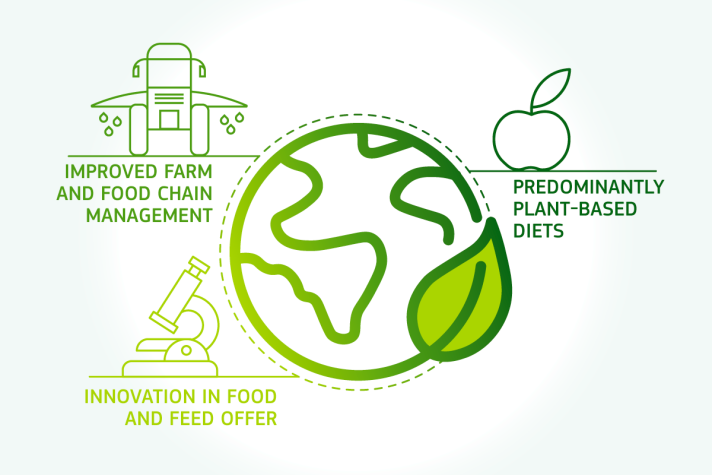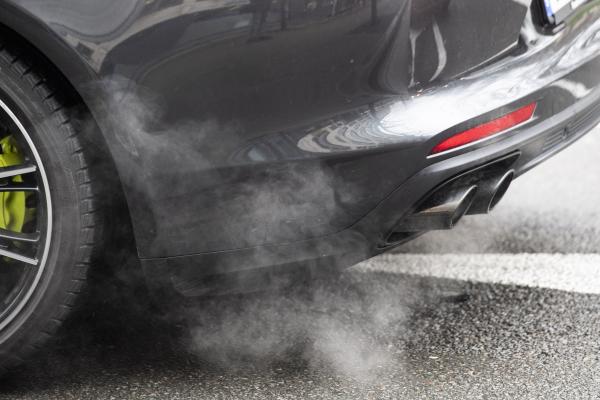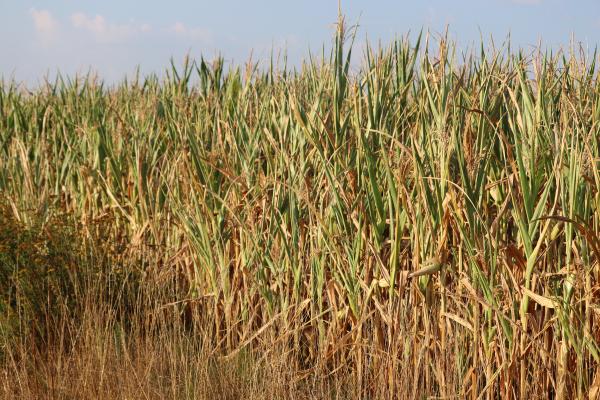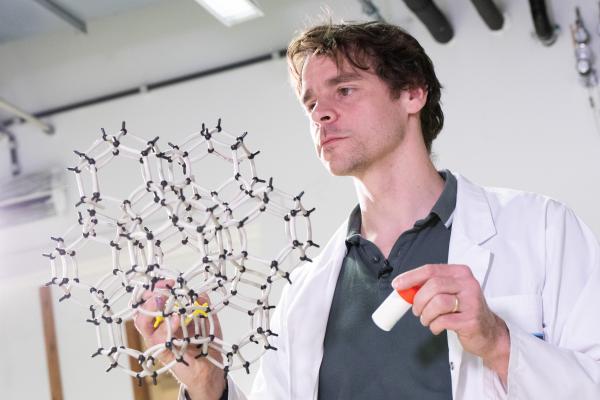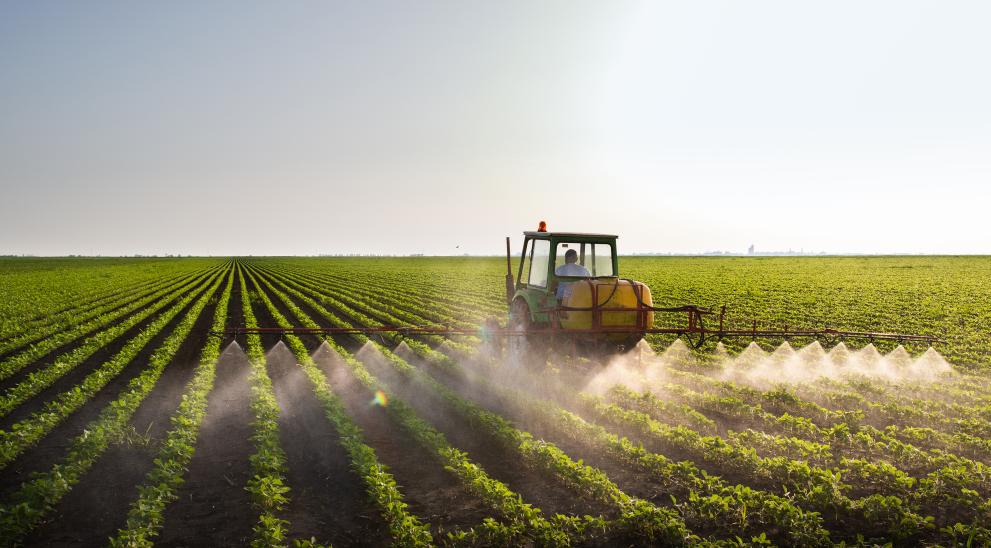
Intensive livestock farming and a diet excessively rich in animal products results in substantial amounts of reactive nitrogen losses into the environment. This causes several forms of air, water and soil pollution, contributing to climate change. Depletion of nitrogen in the soil is considered one of the main causes of losses in biodiversity and natural resources. Healthy soils are the basis for our food security and for the work of farmers.
JRC researchers took part in a group of international scientists working with the Air Convention of the United Nations. Today they published a new report called ‘Appetite for Change: Food system options for nitrogen, environment & health’. It presents the changes needed to achieve the agreed targets to halve nitrogen waste as set in United Nations Environment Programme’s Colombo Declaration and the Kunming-Montreal Global diversity framework, and in line with the EU ambition of reducing nutrient losses, including nitrogen, by 50%.
Healthy soil for food security
Global nitrogen losses pose a serious threat to environmental sustainability. Excess nitrates can lead to water pollution resulting in algal blooms, biodiversity losses and air pollution. These losses also compromise the farming sector’s ability to feed a growing population, which is not sustainably possible with diets high in meat.
This report strengthens the scientific evidence around nitrogen and food systems and calls for more ambitious actions to make the current food system more sustainable. A balanced range of actions, including halved meat and dairy consumption (‘demitarian’ approach) with improved farm and food chain management, and reinforcing a circular economy and the role of livestock in it, could achieve a 49% reduction in nitrogen losses. Encouraging more plant-based diets can promote human health and a healthier planet.
Shifting to a more plant-based diet
Among 144 scenarios investigated in this study, 11 of the 12 which would cut nitrogen loss by 50% and so meet EU targets, involve diet change. The most balanced option with the lowest societal costs to reduce nitrogen losses (by 49%) is a combination of:
- Halving meat and dairy consumption,
- Improving farm and food chain management,
- Reducing overconsumption and protein intake.
More balanced diets, predominantly plant-based, would have lower nitrogen footprints, less greenhouse gas emissions and would bring positive health outcomes.
There are other health considerations too. High nitrate levels in our drinking water and food can increase the risk of non-communicable diseases, including cancer, thyroid disease and cardiovascular disease.
Another way to reduce nitrogen losses from the soil, the scientists found, is to reduce food waste and improve wastewater treatment so more nutrients are recovered.
The report also found that, in 2015, only 18% of nitrogen in the European food system was used in food and fibre products, while most of the remaining was wasted by loss to the environment, contributing to air, water and soil pollution, which threaten our climate, biodiversity and human health.
Creating sustainable food systems
The unprecedented rise in energy, fertiliser and food prices since 2021 underlines the need to address the vulnerability of the food system. Plant-based diets require less land and mineral fertilisers, thus reducing energy dependency and increasing resilience to food and energy crises.
As showed in the Commission Communication on safeguarding food security and reinforcing the resilience of food systems, reducing the dependency of European agriculture on energy, fertilisers and feed imports is more than ever a necessity. Greater efficiency in nutrients use, transition to green ammonia for nitrogen fertilisers, and circular economy were among the proposals presented by the Commission.
By using currently available technologies, there is already considerable scope for improving nitrogen use efficiencies at farm level. This is particularly true for arable systems, which could reach an improvement of up to 92%. High nitrogen use efficiency is also achievable in pig and poultry farming (80%) and cattle and sheep farming (55% to 61%). Future technologies, including precision and digital farming, have the potential to improve nitrogen use efficiency beyond what is currently possible.
Transforming the food system and making progress towards nitrogen targets needs joined-up policies, including financial incentives and helping consumers access more sustainable food choices with a lower environmental impact. Going for available solutions, such as legumes, and innovation in food and feed, may help achieve low nitrogen footprint diets while providing nutritional benefits.
Related links:
Appetite for Change: Food system options for nitrogen, environment & health
Details
- Publication date
- 20 December 2023
- Author
- Joint Research Centre

